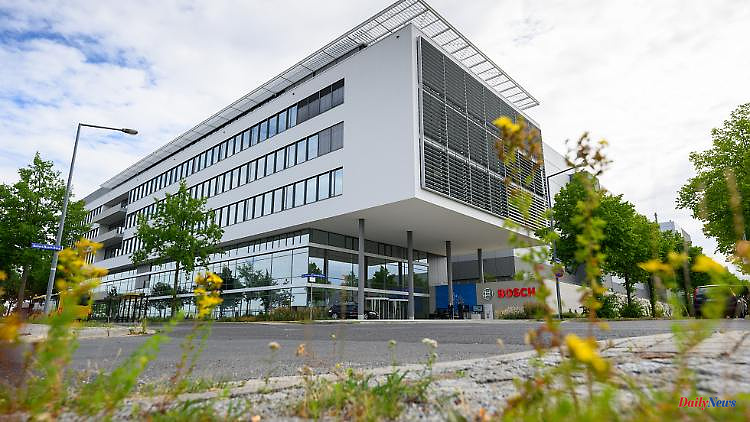Bosch assumes that the chip market will remain tight in the coming years. By 2026, the group will invest another three billion euros in semiconductor production. The money goes to two German locations.
The Stuttgart technology group Bosch is expanding its chip production. By 2026, the automotive supplier wants to invest another three billion euros in the division, as CEO Stefan Hartung announced in Dresden. Both there, where a year ago a new plant for a billion euros went into operation, and in Reutlingen near Stuttgart, Bosch wants to expand capacities and build development centers. Hartung is hoping for further grants as part of the IPCEI funding program, with which the EU wants to give a strong boost to semiconductor production in Europe. Subsidies are important, stressed Hartung: "The plant would not be here if the funding had not existed."
By the end of the decade, according to the will of the EU, one fifth of the chips worldwide should come from Europe, twice as many as before. That is a "super-ambitious goal," explained Hartung. Because production is also being expanded in other parts of the world. So far, the USA and Asia have dominated the market. The long distances had caused the supply chains to break down during the corona pandemic. The quota is not decisive anyway, said Hartung. "You shouldn't expect Europe to become self-sufficient." Rather, it is about building chips specifically for the needs of European industry, for example for e-mobility. Chips for 800 euros would be installed in electric cars, four times as much as in conventional vehicles.
"In the interests of our customers, we are arming ourselves for an unabatedly growing demand for chips. For us, there is big business in the smallest components," said Hartung. The first chips manufactured in the new factory in Saxony, for example, were installed in Bosch cordless screwdrivers. Because of the supply bottlenecks, the group ramped up the factory faster than planned. "We're pushing the pace." In the final phase, after the expansion of the clean rooms for 250 million euros, around 700 people will work there, there are currently 350.
In the short term, however, Hartung is not giving the all-clear for chip demand, even if demand from the consumer goods industry ebbs in view of the slacking economy and rising inflation. However, there are other areas where capacities have not been expanded as much and where there is continued high demand. At Bosch, the supply chains are still very tense and there is little scope, said Hartung. "It will certainly stay that way for a few months."












